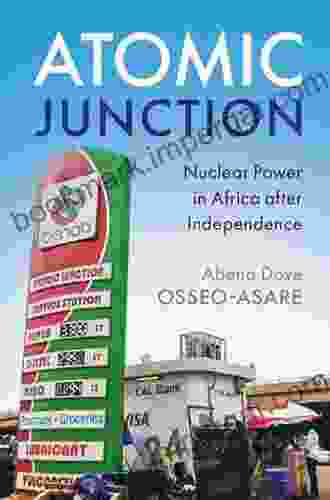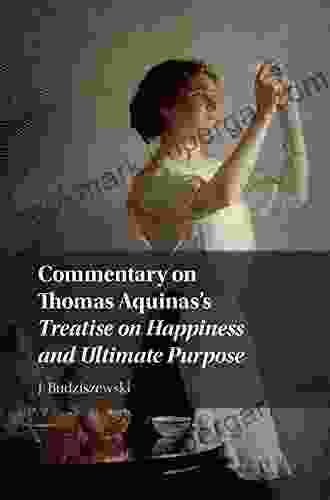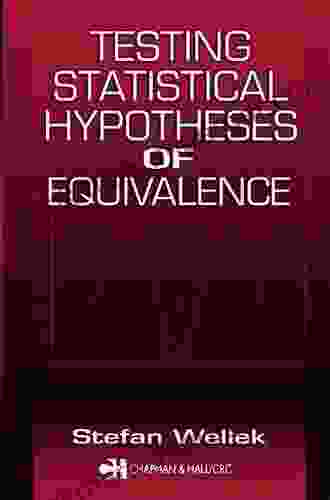Atomic Junction: Nuclear Power in Africa After Independence

In the wake of independence, newly emergent African nations embarked on ambitious nation-building projects, seeking to harness scientific advancements to forge their destinies. Among these aspirations was the pursuit of nuclear power, a symbol of modernity and industrial prowess. Atomic Junction: Nuclear Power in Africa After Independence, a seminal work by Dr. Shaun Malan, delves into this fascinating chapter in African history, exploring the motivations, challenges, and legacy of nuclear power aspirations in the post-colonial era.
5 out of 5
| Language | : | English |
| File size | : | 6655 KB |
| Text-to-Speech | : | Enabled |
| Screen Reader | : | Supported |
| Enhanced typesetting | : | Enabled |
| Word Wise | : | Enabled |
| Print length | : | 295 pages |
Dreams of Atomic Glory
In the early days of independence, African leaders viewed nuclear power as a transformative force. Inspired by the perceived success of nuclear programs in developed nations, they envisioned a future where nuclear energy would drive economic growth, provide reliable electricity, and enhance scientific research capabilities. The International Atomic Energy Agency (IAEA) played a pivotal role in fostering these aspirations, providing technical assistance and promoting the peaceful uses of nuclear technology.
Several African countries, including Egypt, Ghana, Nigeria, and South Africa, established nuclear research centers and ambitious nuclear power plant projects. The construction of the Koeberg Nuclear Power Plant in South Africa, completed in 1985, stands as a testament to Africa's nuclear ambitions at the time.
Challenges and Controversies
However, the path to nuclear power in Africa was not without its challenges and controversies. Safety concerns, particularly in the wake of major nuclear accidents such as Chernobyl, raised public anxiety and put pressure on governments to reassess their nuclear programs. Economic constraints and political instability also hindered the progress of many projects.
The issue of nuclear proliferation further complicated the landscape. Some countries, such as Libya under Muammar Gaddafi, pursued covert nuclear weapons programs, sparking international concern. The international community imposed sanctions and safeguards to prevent the proliferation of nuclear technology and materials.
Legacy and Lessons Learned
While many African nuclear power aspirations ultimately faltered, the legacy of this era remains significant. The establishment of nuclear research centers and the training of scientists and engineers laid the foundation for future developments in nuclear science and technology. Additionally, the controversies surrounding nuclear power in Africa served as a cautionary tale about the importance of transparency, public engagement, and responsible nuclear governance.
Atomic Junction provides a comprehensive analysis of the motivations, challenges, and outcomes of nuclear power aspirations in post-independence Africa. It offers valuable insights into the complex interplay of science, politics, and development during this transformative period.
Atomic Junction: Nuclear Power in Africa After Independence is a compelling and meticulously researched account of a forgotten chapter in African history. By shedding light on the dreams, disappointments, and lessons learned from Africa's nuclear past, this book contributes to our understanding of the complexities of post-colonial development and the ongoing challenges of nuclear energy in the 21st century.
About the Author
Dr. Shaun Malan is a historian and senior lecturer in the Department of History at the University of the Witwatersrand in Johannesburg, South Africa. His research focuses on the history of science and technology in Africa, with a particular emphasis on nuclear energy and nuclear weapons.
5 out of 5
| Language | : | English |
| File size | : | 6655 KB |
| Text-to-Speech | : | Enabled |
| Screen Reader | : | Supported |
| Enhanced typesetting | : | Enabled |
| Word Wise | : | Enabled |
| Print length | : | 295 pages |
Do you want to contribute by writing guest posts on this blog?
Please contact us and send us a resume of previous articles that you have written.
 Book
Book Novel
Novel Page
Page Chapter
Chapter Text
Text Story
Story Genre
Genre Reader
Reader Library
Library Paperback
Paperback E-book
E-book Magazine
Magazine Newspaper
Newspaper Paragraph
Paragraph Sentence
Sentence Bookmark
Bookmark Shelf
Shelf Glossary
Glossary Bibliography
Bibliography Foreword
Foreword Preface
Preface Synopsis
Synopsis Annotation
Annotation Footnote
Footnote Manuscript
Manuscript Scroll
Scroll Codex
Codex Tome
Tome Bestseller
Bestseller Classics
Classics Library card
Library card Narrative
Narrative Biography
Biography Autobiography
Autobiography Memoir
Memoir Reference
Reference Encyclopedia
Encyclopedia Jacinta Lu Costello
Jacinta Lu Costello Howard Carter
Howard Carter Iain Borden
Iain Borden Jacqueline Loss
Jacqueline Loss Ilana Pardes
Ilana Pardes Instafo
Instafo Jack Kunkel
Jack Kunkel J Russell Ramsay
J Russell Ramsay Ian Finlayson
Ian Finlayson Silvija D Meija
Silvija D Meija Matthew Biberman
Matthew Biberman Ichiro Kawachi
Ichiro Kawachi Jimmy Carter
Jimmy Carter Wade Coye
Wade Coye Ichiro Okura
Ichiro Okura Sally Babidge
Sally Babidge J R Briamonte
J R Briamonte Kung Yao
Kung Yao Ngozi Okonjo Iweala
Ngozi Okonjo Iweala Hugh Thomson
Hugh Thomson
Light bulbAdvertise smarter! Our strategic ad space ensures maximum exposure. Reserve your spot today!
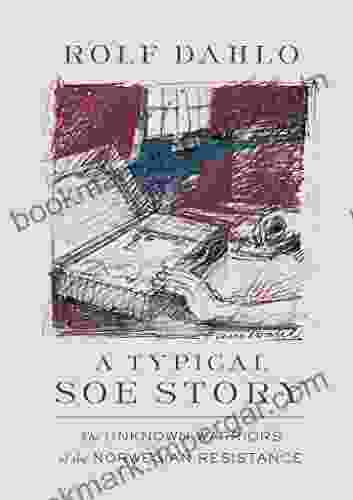
 Christian CarterThe Unknown Warriors Of The Norwegian Resistance: Uncovering Their Untold...
Christian CarterThe Unknown Warriors Of The Norwegian Resistance: Uncovering Their Untold...
 Benjamin StoneSixteenth, Seventeenth, Eighteenth and Nineteenth Battalions: The Manchester...
Benjamin StoneSixteenth, Seventeenth, Eighteenth and Nineteenth Battalions: The Manchester... Dean CoxFollow ·14k
Dean CoxFollow ·14k Ruben CoxFollow ·14.2k
Ruben CoxFollow ·14.2k Kelly BlairFollow ·18.7k
Kelly BlairFollow ·18.7k Richard AdamsFollow ·6.1k
Richard AdamsFollow ·6.1k Eli BrooksFollow ·15.2k
Eli BrooksFollow ·15.2k Clayton HayesFollow ·8.5k
Clayton HayesFollow ·8.5k Keith CoxFollow ·17.3k
Keith CoxFollow ·17.3k Aaron BrooksFollow ·4.7k
Aaron BrooksFollow ·4.7k

 Mike Hayes
Mike HayesUnlock Your Nonprofit Potential: A Comprehensive Guide to...
: Embarking on the Path to Impactful...
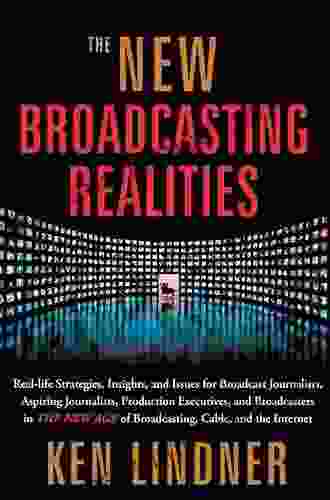
 Cody Russell
Cody RussellUnlock the Secrets of Captivating Radio Programming:...
In the fiercely competitive world of...

 Aron Cox
Aron CoxUnveiling the Enchanting World of Beth Inspired Eye...
A Realm of Imagination and Wonder Embark on...

 Felix Carter
Felix CarterUnlock the Secrets of Legal Publishing with West Hartford...
West Hartford Legal Publishing, the renowned...

 Henry Hayes
Henry HayesUnveiling the Secrets of the Panama Papers: Exposing...
The Panama Papers is a groundbreaking...
5 out of 5
| Language | : | English |
| File size | : | 6655 KB |
| Text-to-Speech | : | Enabled |
| Screen Reader | : | Supported |
| Enhanced typesetting | : | Enabled |
| Word Wise | : | Enabled |
| Print length | : | 295 pages |


